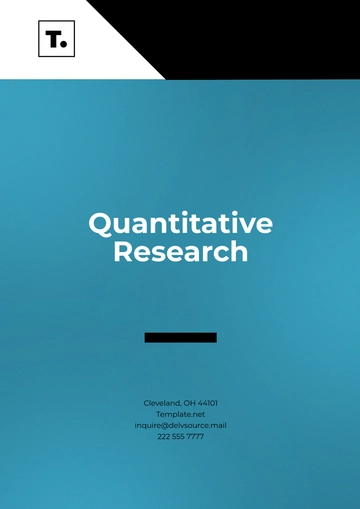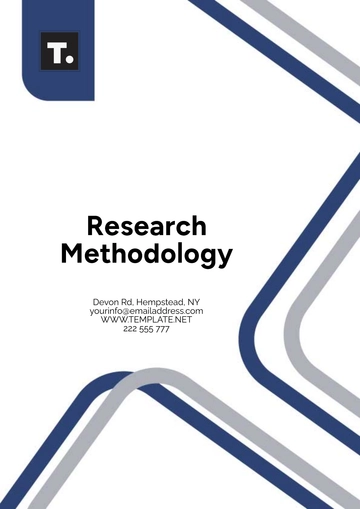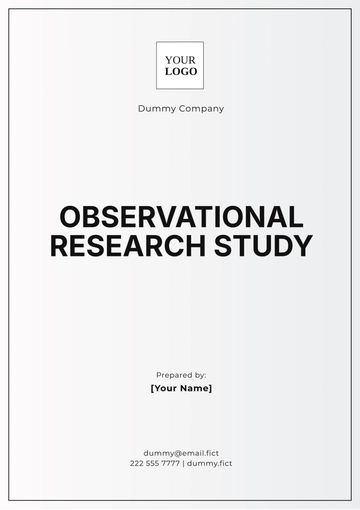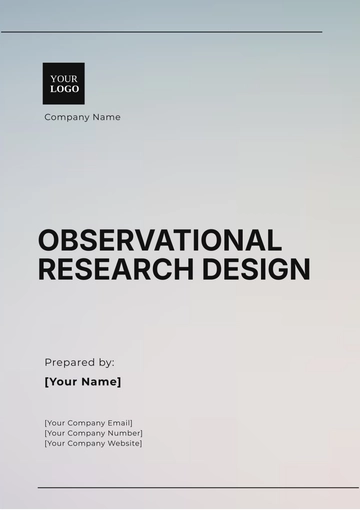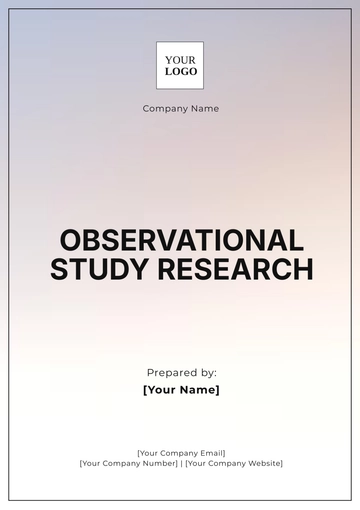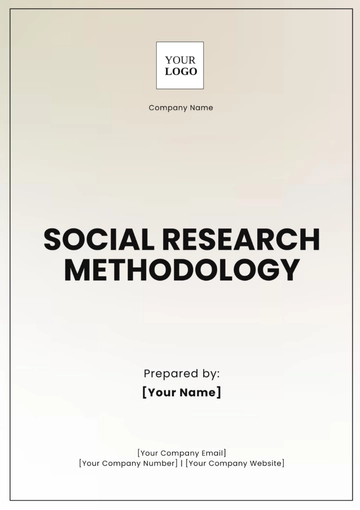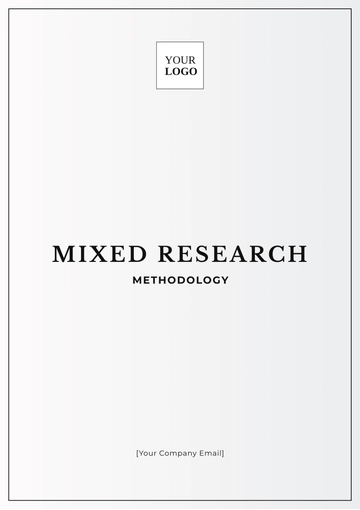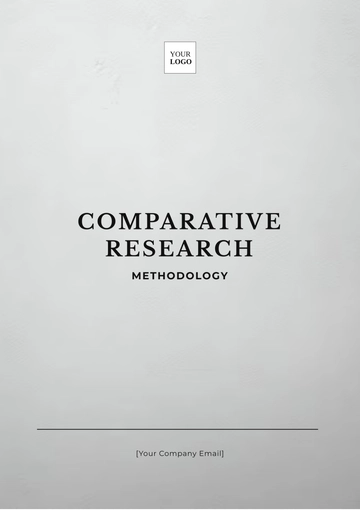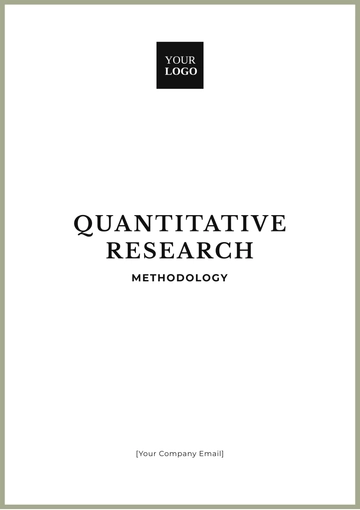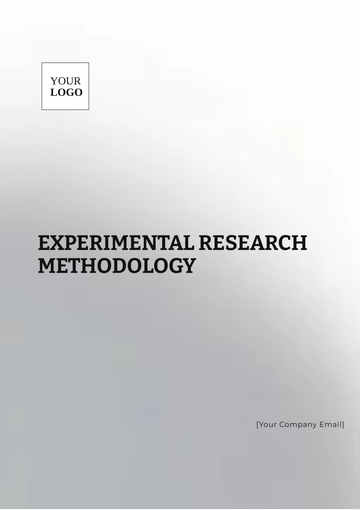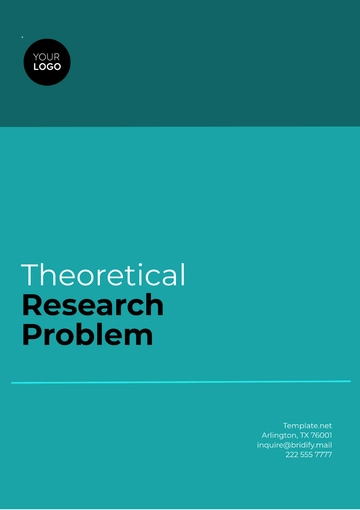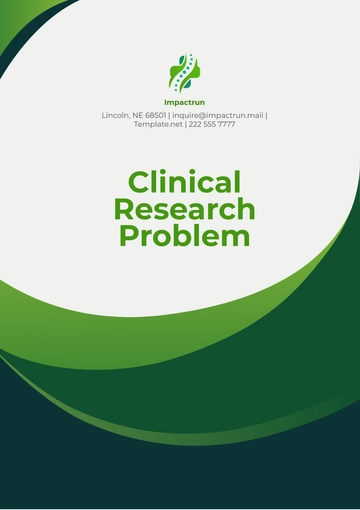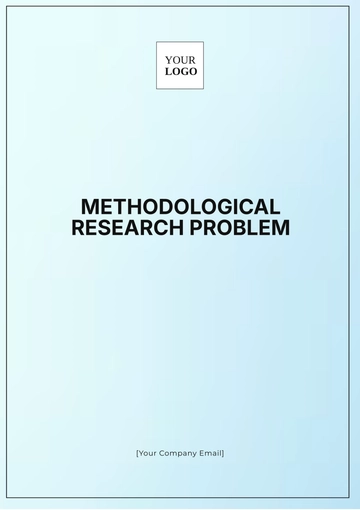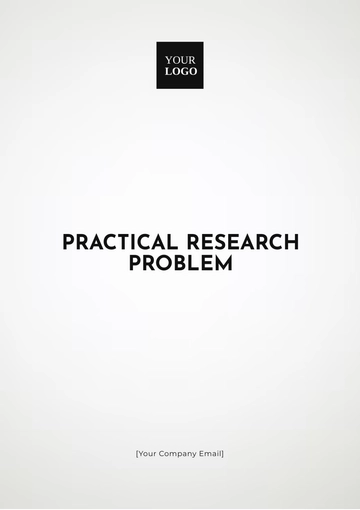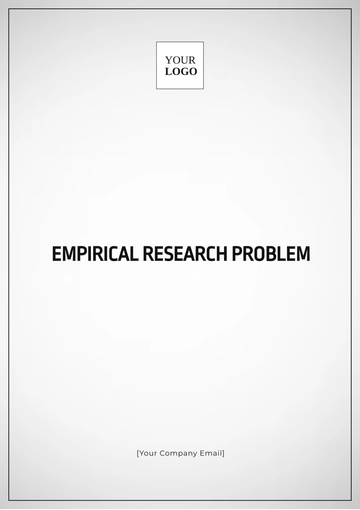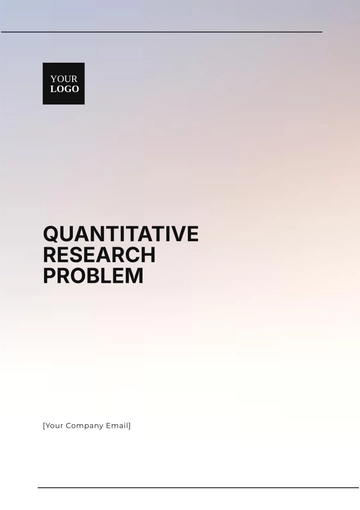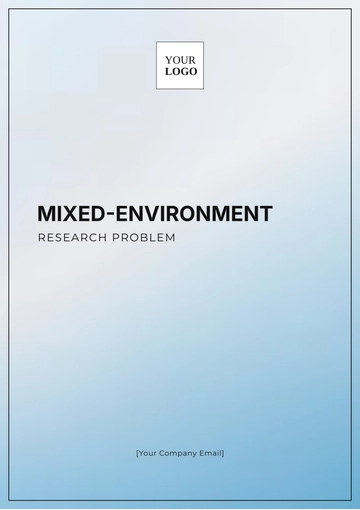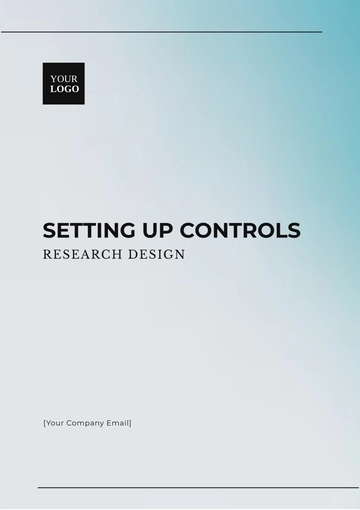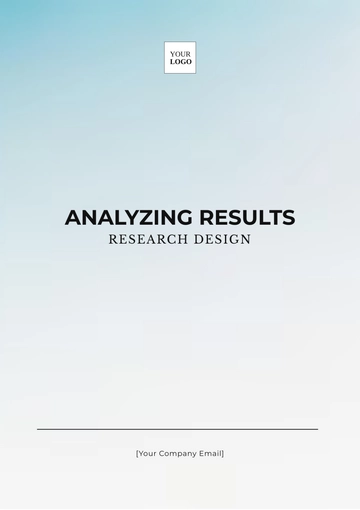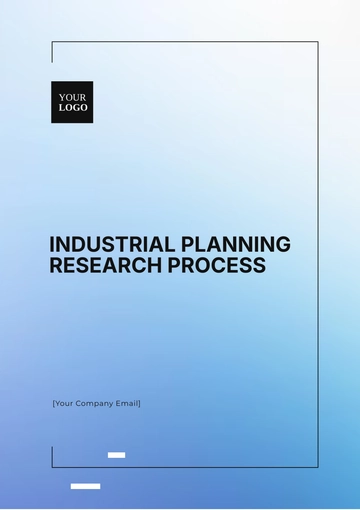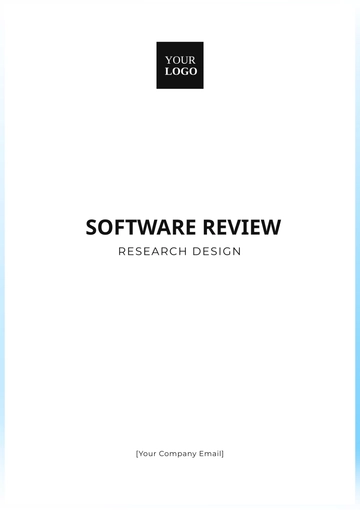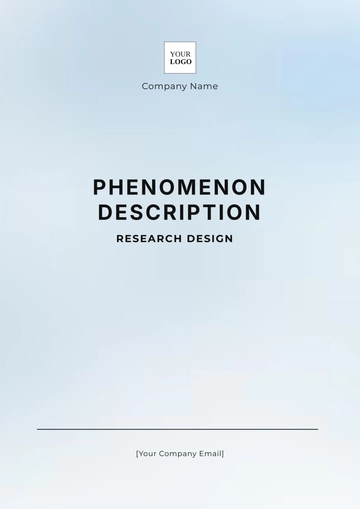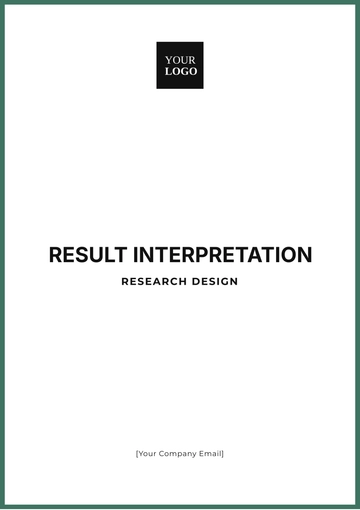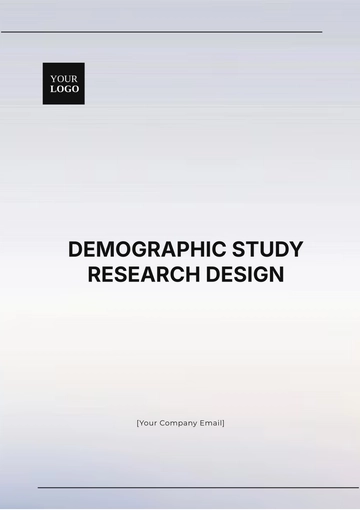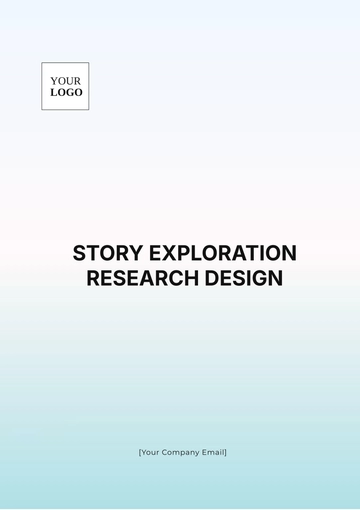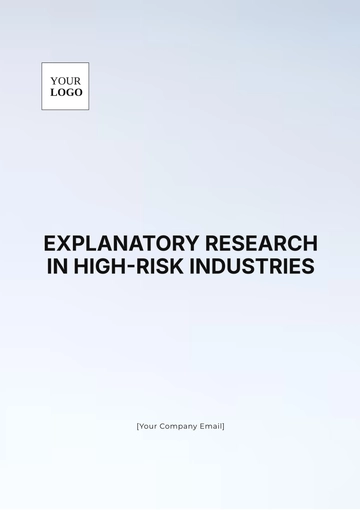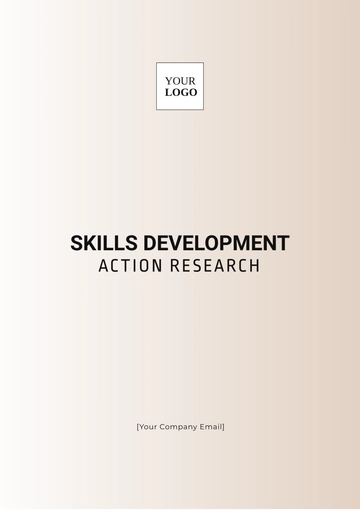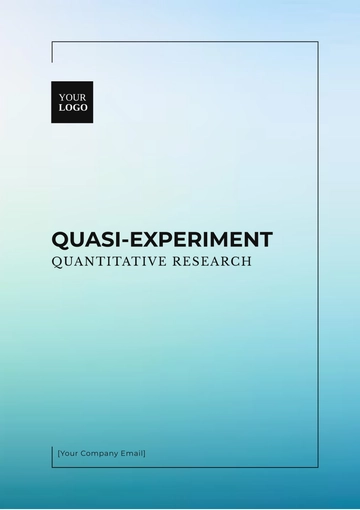Free Clinical Research Problem
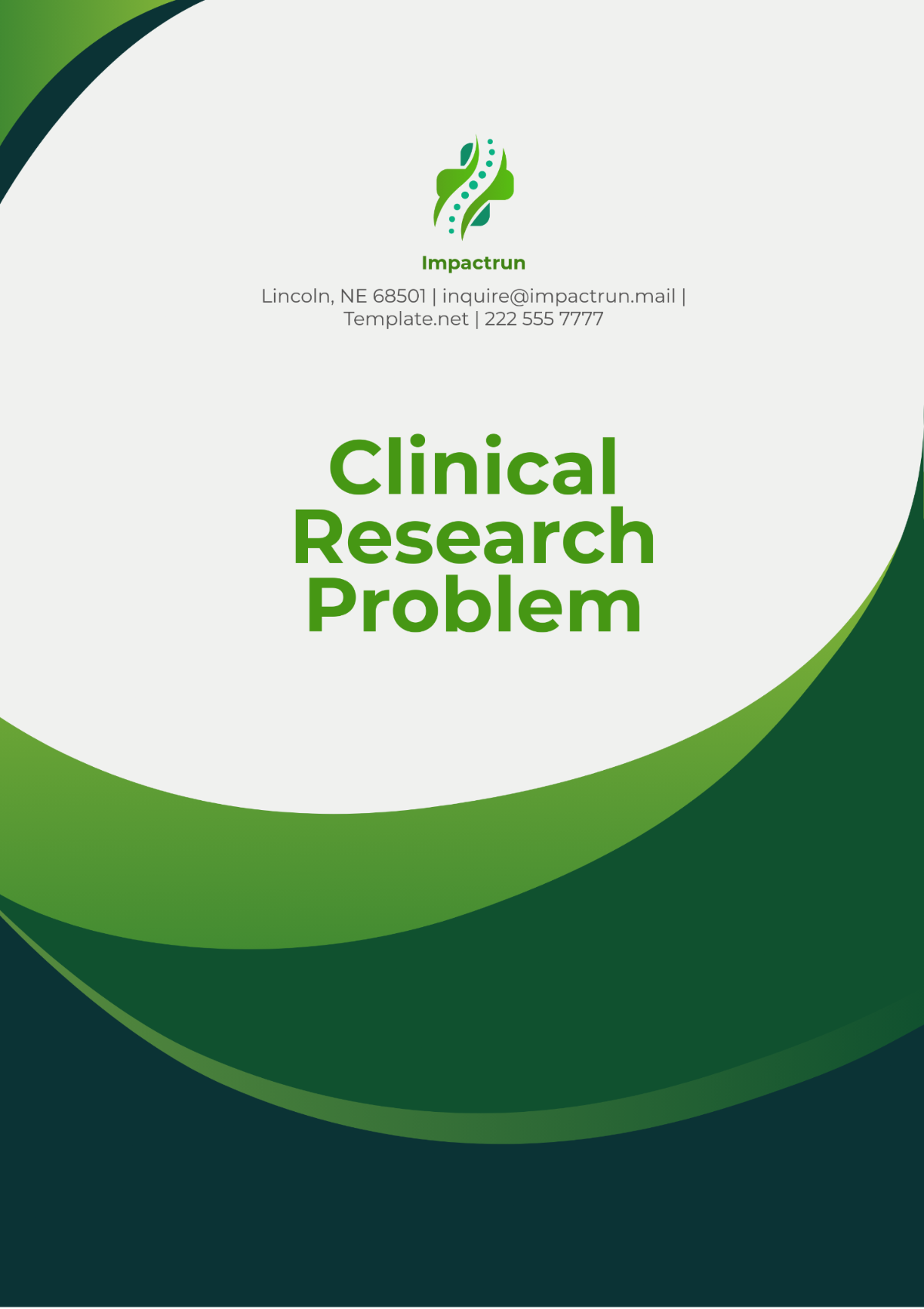
Prepared by: [YOUR NAME]
Introduction
Hypertension, also known as high blood pressure, is one of the leading causes of cardiovascular disease globally. Stage 2 Hypertension (systolic blood pressure ≥ 140 mm Hg or diastolic ≥ 90 mm Hg) requires aggressive treatment due to its association with higher risks of heart attack, stroke, and kidney failure.
Current Knowledge: Common medications used for managing hypertension include ACE inhibitors, beta-blockers, and calcium channel blockers. However, long-term use of these medications is often associated with adverse effects like dizziness, fatigue, and bradycardia, leading to poor adherence.
Gap in Knowledge: Despite existing treatments, many patients remain inadequately controlled or discontinue treatment due to adverse effects. Hypertrol, a novel antihypertensive drug, has shown promise in preclinical studies, but its efficacy and long-term safety in humans have not been comprehensively studied.
Problem Statement
Although several antihypertensive drugs are available, many patients with Stage 2 Hypertension fail to reach their target blood pressure or discontinue therapy due to intolerable side effects. This study aims to assess whether hypertension provides superior blood pressure control with fewer side effects compared to current first-line treatments.
Research Objectives
To evaluate the reduction in systolic and diastolic blood pressure in patients treated with Hypertrol compared to those treated with standard ACE inhibitors over 12 weeks.
To assess the incidence of side effects, including dizziness, fatigue, and bradycardia, in the hypertension group compared to the control group.
To determine patient adherence to hypertension over a 6-month follow-up period, compared to existing treatments.
Research Hypothesis
We hypothesize that patients treated with Hypertrol will achieve a more significant reduction in systolic blood pressure (≥ 15 mm Hg) compared to those treated with ACE inhibitors while experiencing fewer side effects and higher medication adherence.
Significance of the Study
This research will provide valuable insights into the potential of hypertension as a new therapeutic option for Stage 2 Hypertension. If successful, this study could lead to the adoption of hypertension as a first-line treatment, offering better outcomes and improved patient adherence due to a reduced side effect profile.
Methodology
Study Design: A 12-week randomized, double-blind, controlled trial comparing hypertension and an ACE inhibitor in patients with Stage 2 Hypertension.
Participants: 300 patients aged 40-65, diagnosed with Stage 2 Hypertension, with a systolic blood pressure of ≥ 140 mm Hg.
Inclusion Criteria: Patients diagnosed with hypertension for at least 6 months, non-responsive to lifestyle changes, no significant cardiovascular events in the past year.
Exclusion Criteria: Pregnant or lactating women, individuals with severe liver or kidney disease, and patients on multiple antihypertensive medications.
Intervention/Control:
Intervention Group: Hypertrol 100 mg, taken orally once daily.
Control Group: ACE inhibitor (Lisinopril) 10 mg, taken orally once daily.
Data Collection: Blood pressure measurements will be taken at baseline, 6 weeks, and 12 weeks. Patient diaries will record any adverse events or side effects. Adherence will be monitored through electronic pill bottles.
Data Analysis: Differences in blood pressure between the two groups will be analyzed using a mixed-model ANOVA. The incidence of side effects will be compared using chi-square tests.
Ethical Considerations
Ethical approval will be obtained from the Institutional Review Board of the Global Health Research Center. All participants will provide written informed consent before enrollment. The study will follow the Declaration of Helsinki guidelines, ensuring patient confidentiality, safety, and the right to withdraw from the study without consequences.
Expected Outcomes
We expect that patients in the Hypertrol group will experience a significant reduction in systolic and diastolic blood pressure (≥ 15 mm Hg reduction) compared to the control group. Fewer side effects, such as dizziness or bradycardia, are anticipated in the Hypertrol group, leading to better patient adherence for the study.
- 100% Customizable, free editor
- Access 1 Million+ Templates, photo’s & graphics
- Download or share as a template
- Click and replace photos, graphics, text, backgrounds
- Resize, crop, AI write & more
- Access advanced editor
Optimize clinical investigations with Template.net's Clinical Research Problem Template. Fully editable and customizable, it provides a reliable framework for clinical studies. Editable in our Ai Editor Tool, it adapts to meet various research protocols in healthcare settings.
